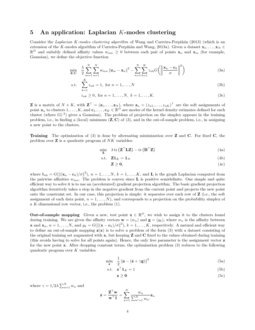Teach a Man to Fish for Lasting Success

The Age-Old Proverb

The phrase “teach a man to fish” is a timeless proverb that has been passed down for generations. It suggests that instead of providing temporary sustenance, it’s better to equip someone with the skills and knowledge to become self-sufficient. This approach not only fosters independence but also promotes lasting success. In this blog post, we’ll delve into the significance of this proverb and explore its applications in various aspects of life.
The Origins of the Proverb

The phrase “teach a man to fish” is often attributed to the Chinese philosopher Lao Tzu, who lived in the 6th century BC. The original quote is: “Give a man a fish, and you feed him for a day. Teach a man to fish, and you feed him for a lifetime.” This saying emphasizes the importance of empowerment and self-sufficiency over temporary solutions.
Applying the Proverb in Education

In the context of education, the proverb highlights the difference between teaching students facts versus teaching them how to think critically and solve problems. By providing students with the tools and techniques to learn independently, educators can foster a love for learning that extends beyond the classroom.
- Encouraging critical thinking: Instead of spoon-feeding students with information, teachers can encourage critical thinking by presenting them with real-world problems to solve.
- Developing problem-solving skills: By teaching students how to approach problems in a systematic and methodical way, educators can help them develop essential problem-solving skills.
- Promoting self-directed learning: By providing students with the resources and support they need to learn independently, teachers can promote self-directed learning and a sense of ownership over the learning process.
📝 Note: Research has shown that students who are encouraged to think critically and solve problems independently tend to perform better academically and have better career prospects.
Applying the Proverb in Business

In the business world, the proverb can be applied to leadership and management. Instead of micromanaging employees, leaders can empower them by providing the necessary training and resources to take ownership of their work.
- Providing ongoing training and development: By investing in employee training and development, businesses can help their staff develop the skills and knowledge they need to succeed.
- Encouraging autonomy and independence: By giving employees the freedom to make decisions and take ownership of their work, businesses can promote autonomy and independence.
- Fostering a culture of innovation: By encouraging employees to think creatively and develop innovative solutions, businesses can foster a culture of innovation and growth.
Applying the Proverb in Personal Development

On a personal level, the proverb can be applied to our own lives by focusing on self-improvement and personal growth. Instead of relying on others for help or guidance, we can take ownership of our own development by seeking out new skills and knowledge.
- Setting goals and working towards them: By setting clear goals and working towards them, individuals can take ownership of their own development and achieve lasting success.
- Seeking out new skills and knowledge: By continually seeking out new skills and knowledge, individuals can stay ahead of the curve and adapt to changing circumstances.
- Developing a growth mindset: By adopting a growth mindset, individuals can view challenges as opportunities for growth and development, rather than threats to their ego.
Conclusion

The proverb “teach a man to fish” offers valuable insights into the importance of empowerment and self-sufficiency. By applying this approach in education, business, and personal development, we can promote lasting success and achieve our goals. Whether it’s teaching students how to think critically, empowering employees to take ownership of their work, or seeking out new skills and knowledge, the principles of this proverb remain timeless and universal.
What is the origin of the proverb “teach a man to fish”?

+
The phrase “teach a man to fish” is often attributed to the Chinese philosopher Lao Tzu, who lived in the 6th century BC.
How can the proverb be applied in education?

+
In education, the proverb can be applied by encouraging critical thinking, developing problem-solving skills, and promoting self-directed learning.
What are some ways to apply the proverb in personal development?

+
In personal development, the proverb can be applied by setting goals and working towards them, seeking out new skills and knowledge, and developing a growth mindset.



